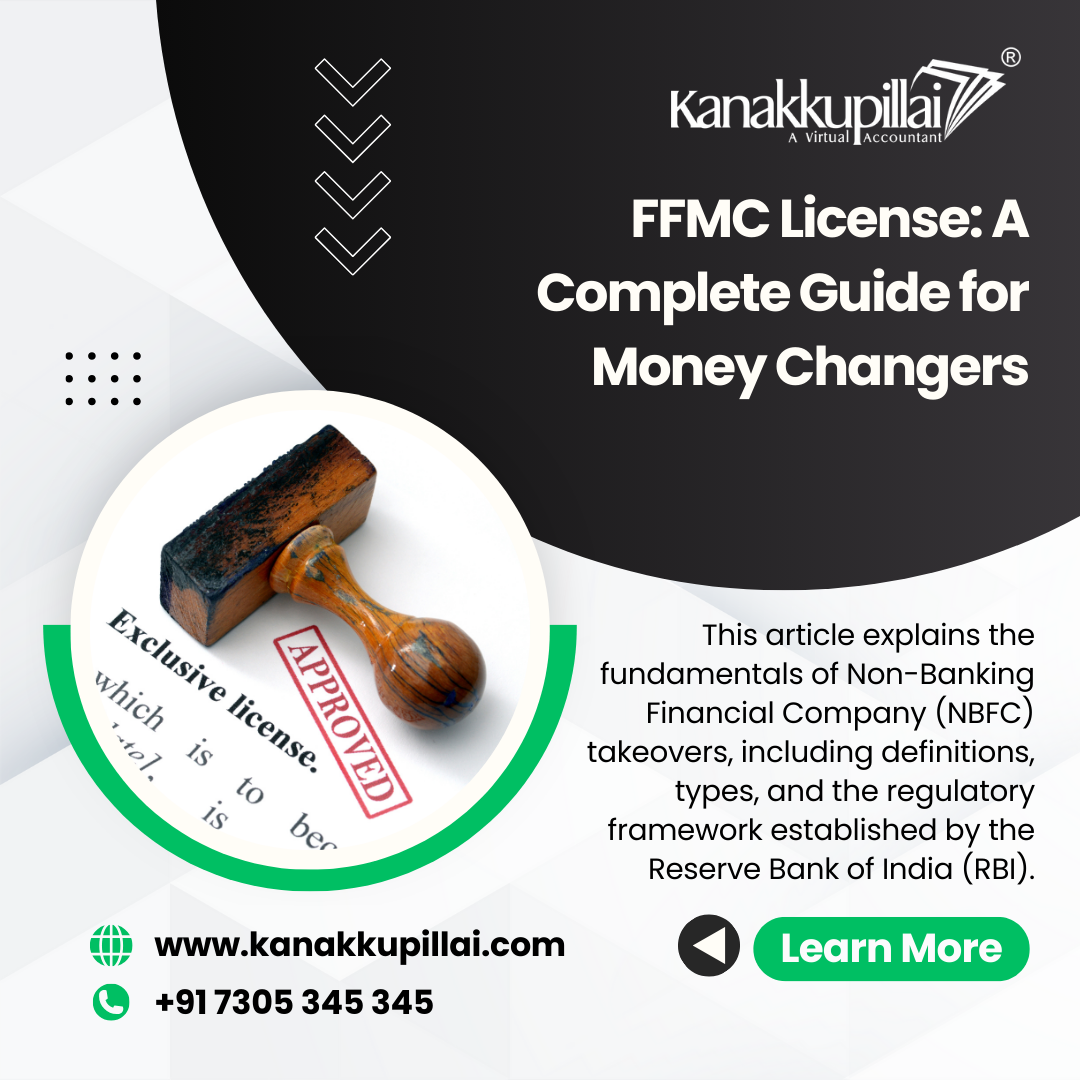Introduction
The Full-Faced Money Changer (FFMC) license is a crucial requirement for entities looking to engage in foreign exchange transactions in India. This comprehensive guide will walk you through everything you need to know about obtaining and maintaining an FFMC license, including eligibility criteria, application processes, and compliance requirements.
What is an FFMC License?
An FFMC license is a permit granted by the Reserve Bank of India (RBI) that allows entities to buy and sell foreign currencies, traveler's cheques, and prepaid foreign currency cards. The primary objective of this license is to facilitate foreign exchange transactions for tourists and businesses while ensuring compliance with regulatory frameworks.
Types of FFMC Licenses
There are two main types of licenses issued under the FFMC category:
- Full-Faced Money Changer (FFMC) License: This license allows the holder to conduct all kinds of foreign currency transactions, including buying, selling, and exchanging currencies.
- Restricted Money Changer (RMC) License: This license permits limited money-changing operations, such as issuing traveller's cheques or providing prepaid currency cards.
Eligibility Criteria for Obtaining an FFMC License
To apply for an FFMC license, the following eligibility criteria must be met:
- Company Registration: The applicant must be a company registered under the Companies Act of 2013.
- Net Owned Funds: The entity must maintain a minimum net-owned fund of INR 25 lakhs for a single-branch license and INR 50 lakhs for a multiple-branch license.
- Good Reputation: Directors and shareholders must have a clean track record without any pending civil or criminal cases.
- Business Objective: The company's memorandum must clearly state its intention to engage in money-changing activities.
Application Process for FFMC License
The application process for obtaining an FFMC license involves several steps:
- Documentation Preparation: Gather necessary documents, including:
- Certificate of incorporation
- Memorandum of association
- Recent audited financial statements
- KYC documents of directors and shareholders
- A declaration regarding investigations by law enforcement agencies.
- Submission to RBI: Apply along with all required documents to the relevant Regional Office of the RBI.
- Review Process: The RBI will review the application and may conduct inspections or request additional information before approving.
- License Issuance: Once approved, the FFMC license will be issued, allowing the entity to commence foreign exchange operations.
Required Documents
The following documents are essential when applying for an FFMC license:
- Certificate of incorporation
- Memorandum of association indicating money-changing activities
- A recent balance sheet with net-owned funds certification
- KYC documents for directors
- Lease agreement or proof of business address.
Compliance Requirements After Obtaining an FFMC License
After obtaining the FFMC Registration license, entities must adhere to various compliance requirements:
- Operational Commencement: The business must start operations within six months of receiving the license.
- Record Keeping: Maintain detailed records of all transactions, including:
- Daily summary and balance books for foreign currencies
- Registers for purchases and sales of foreign currencies.
- Annual Audits: Submit annual audited balance sheets to the RBI's regional office to verify compliance with net-owned funds requirements.
- Concurrent Audits: Implement concurrent audits to ensure all transactions comply with regulatory standards.
- Display License: A copy of the FFMC license must be displayed prominently at all business locations.
Renewal Process for FFMC License
The FFMC license is typically valid for three years. To continue operations without interruption, entities must initiate the renewal process at least one month before the expiration date. This involves submitting a renewal application along with updated documentation and payment of any applicable fees.
Penalties for Non-Compliance
Entities operating without a valid FFMC license or failing to comply with regulatory requirements may face severe penalties, including:
- Cancellation of the FFMC license
- Monetary fines
- Legal action by regulatory authorities.
Conclusion
Obtaining an FFMC license is essential for any entity wishing to operate in India's foreign exchange market. By understanding the eligibility criteria, application process, compliance requirements, and renewal procedures, businesses can navigate this complex landscape effectively. Ensuring adherence to regulations not only facilitates smooth operations but also enhances customer trust and service quality in this competitive sector.
With proper guidance and professional assistance, navigating the complexities of obtaining and maintaining an FFMC license can be simplified, allowing businesses to focus on delivering exceptional services in foreign exchange transactions.





Comments